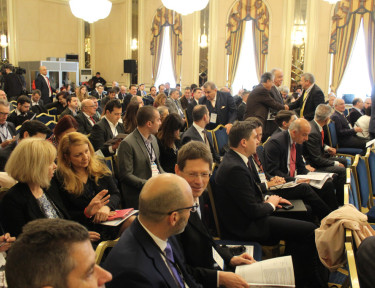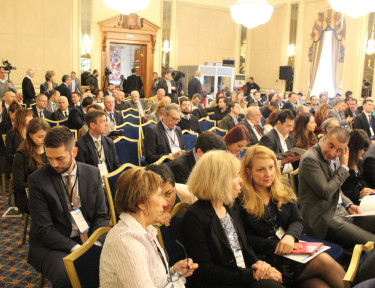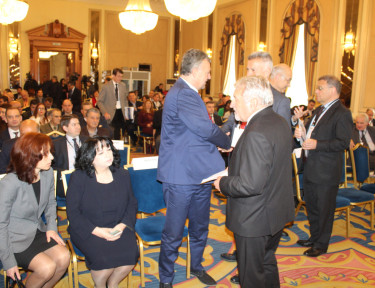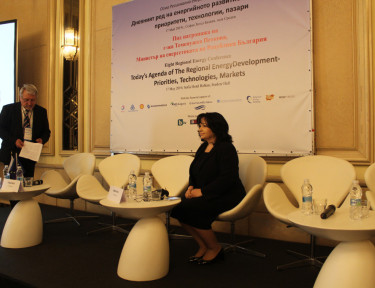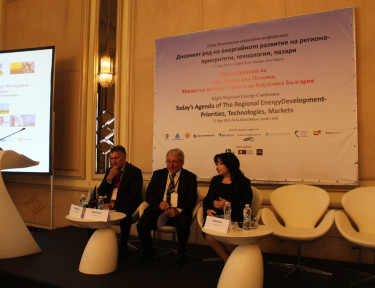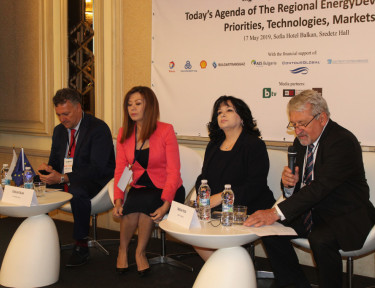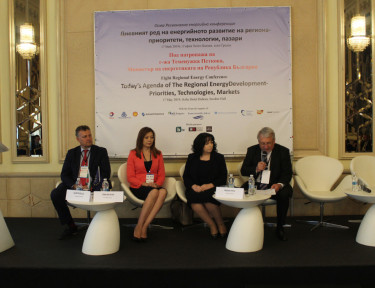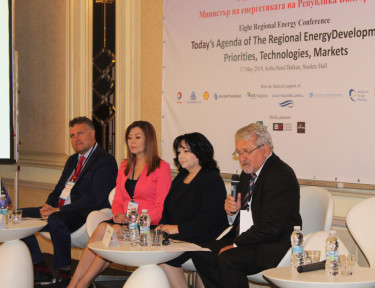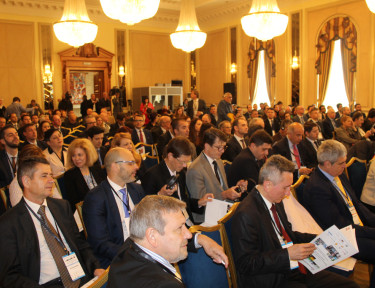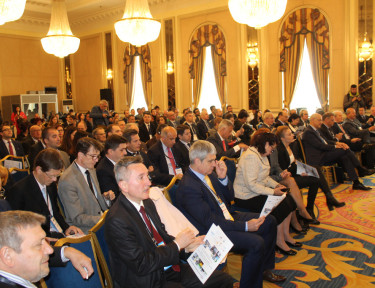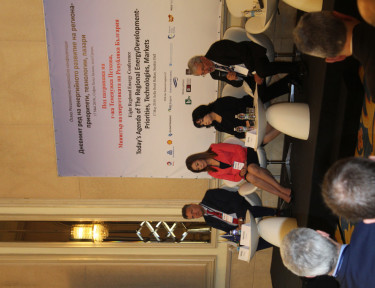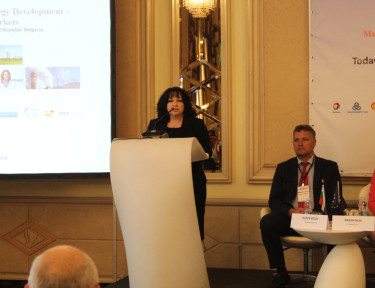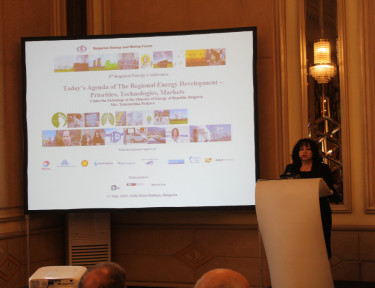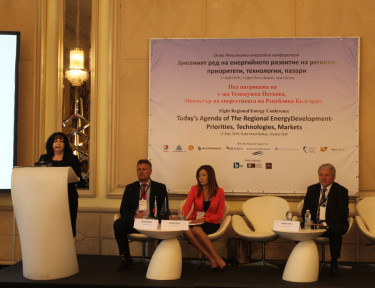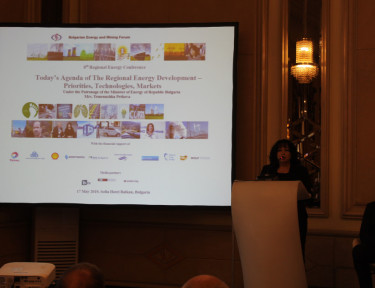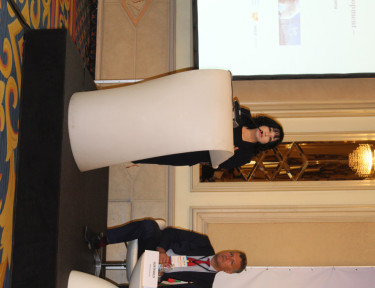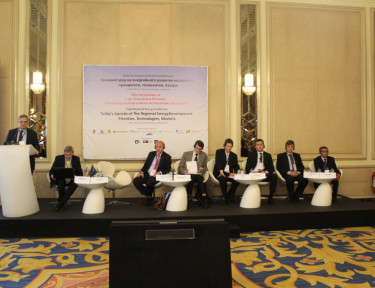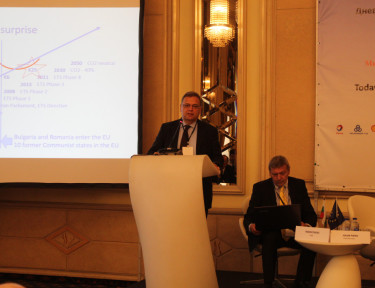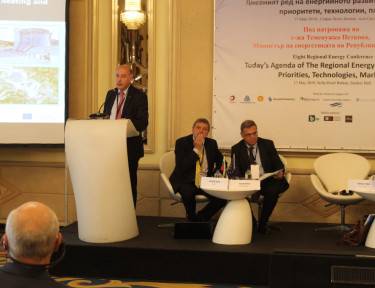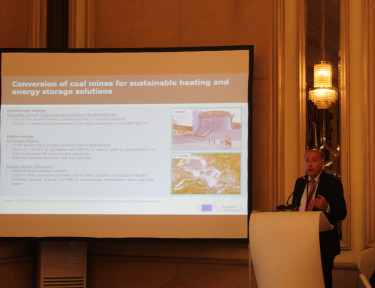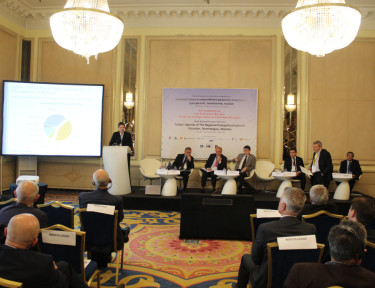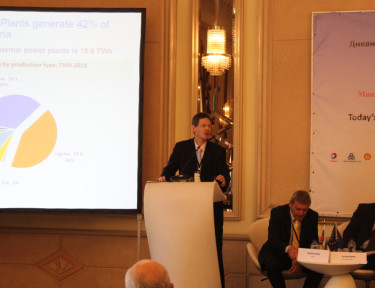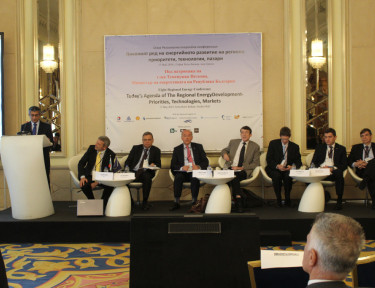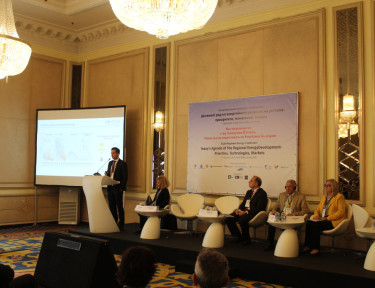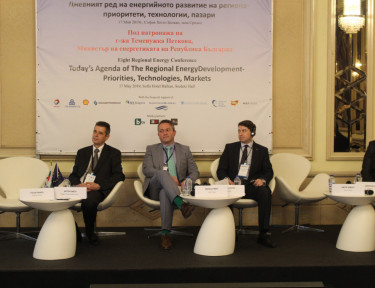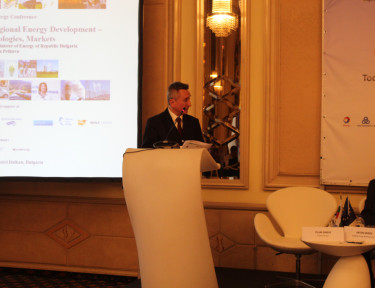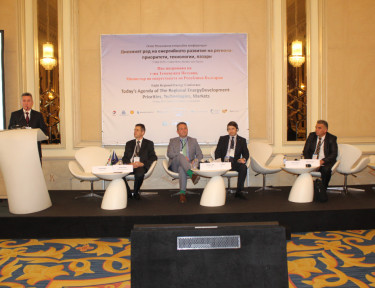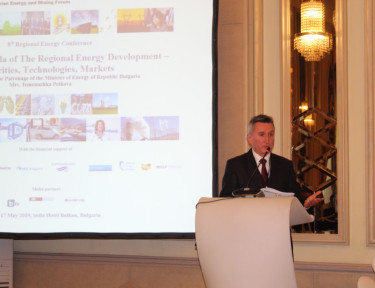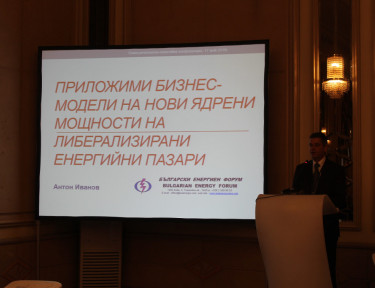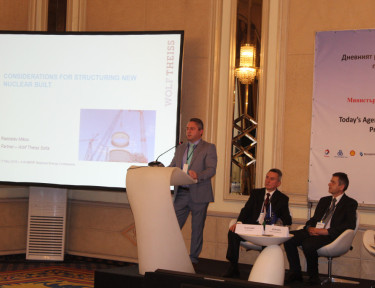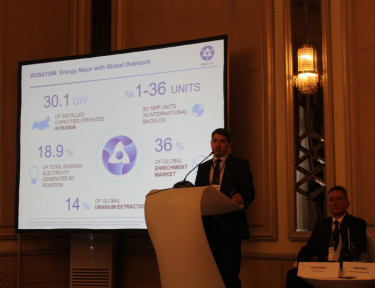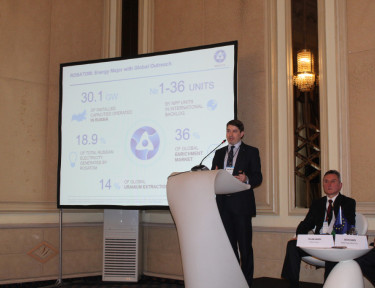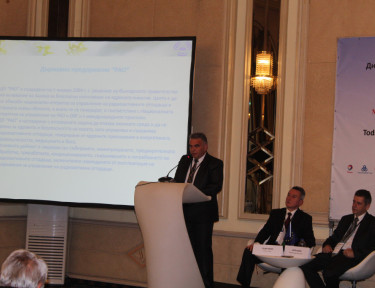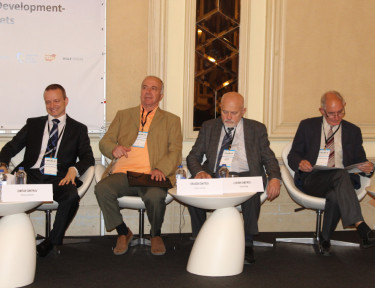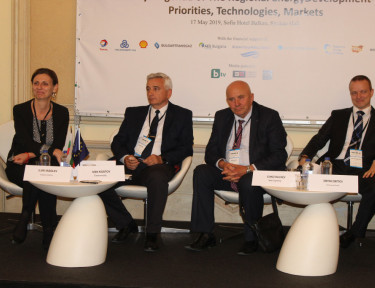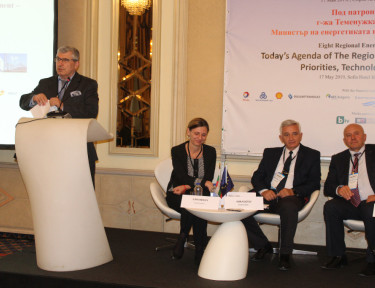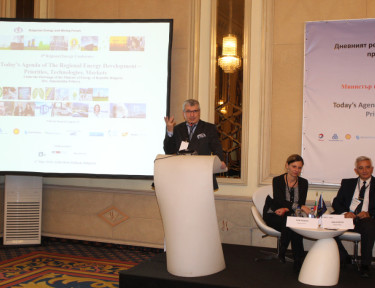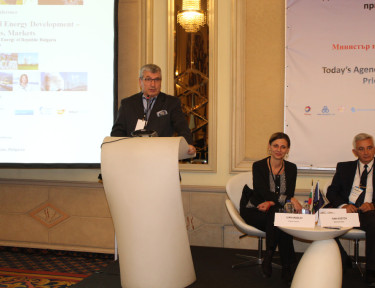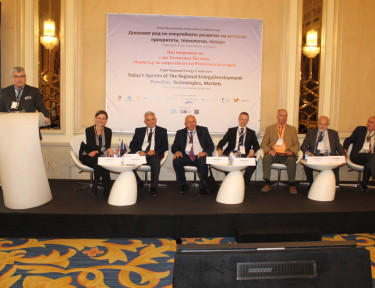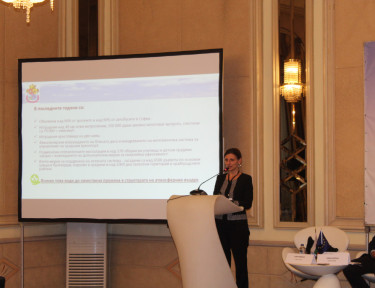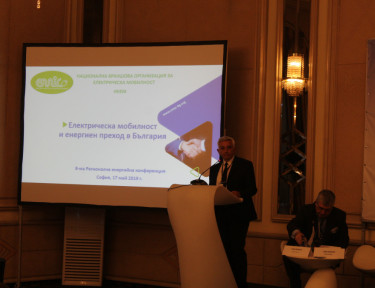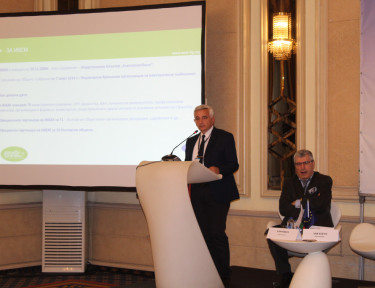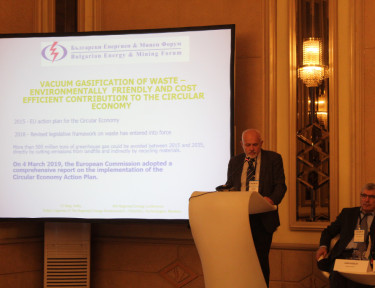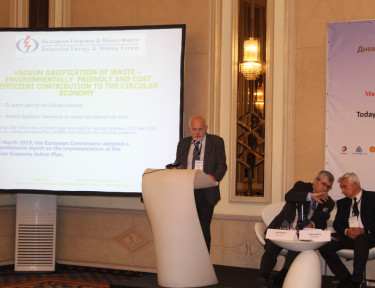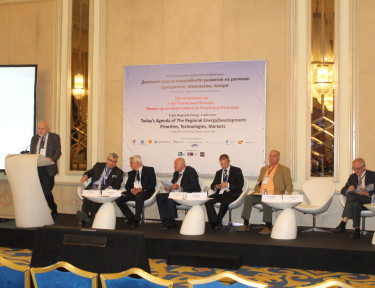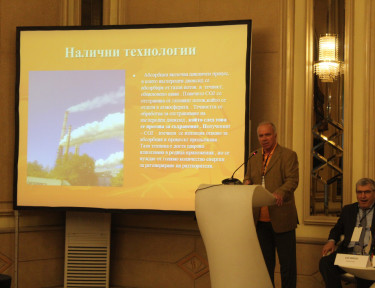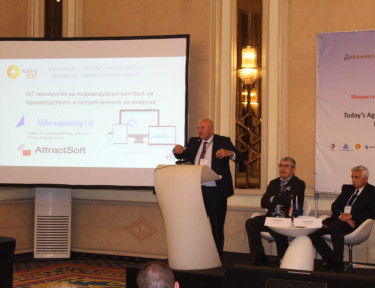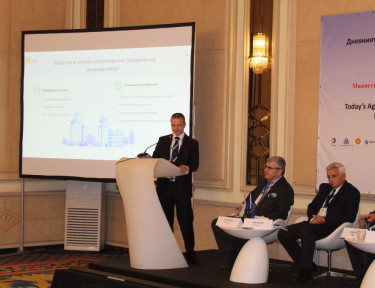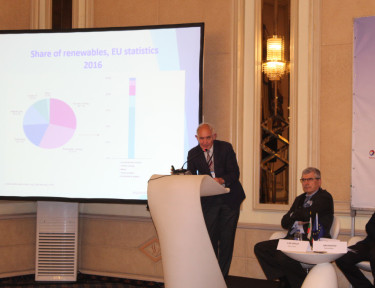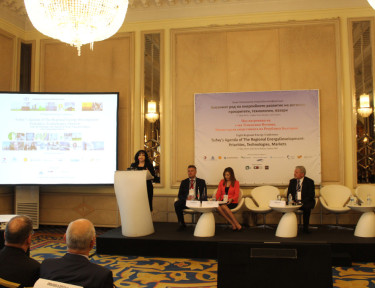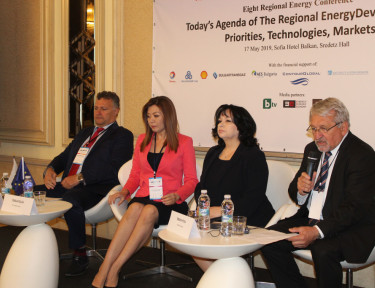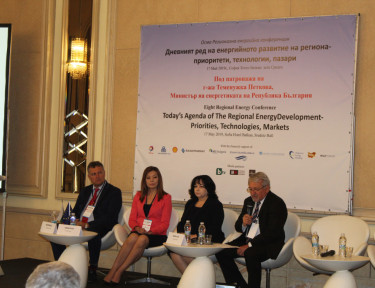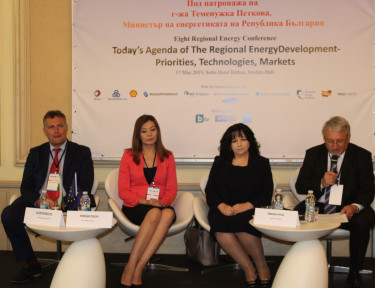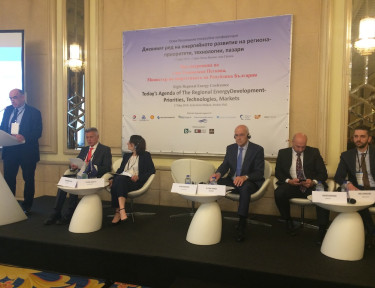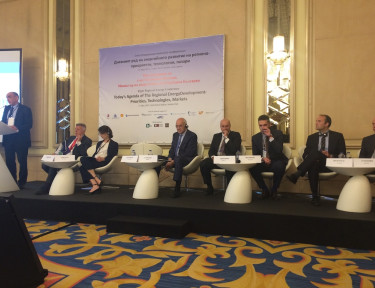More than 300 experts from 14 European countries and the US attended the 8th Regional Energy Conference of the Bulgarian Energy and Mining Forum that took place in Sofia on the 17 May 2019 under the patronage of the Minister of Energy Mrs. Temenuzhka Petkova. 30 reports were presented in 5 specialised panels.
More than ten VIP representatives of international institutions, organisations and big international companies made contribution to the conference, including the newly elected President of ACER, the Deputy Director of EC directorate, the Chair of the Board and CEO of the Polish Mining and Energy Company, the Executive Secretary of EUROCOAL, CEOs of a number of energy and gas companies in the EU, CEOs of technological companies and consultancies, etc.
In addition to the abundant conference programme, all major current issues of the national and European energy sector were also discussed in detail in the lobbies during the breaks, achieving the objectives of the event.
The first panel had a focus on the coal regions in transition, and the stress was put on the need to timely formulate a national strategy for Bulgaria, as well as make decisions in this respect, on both national and regional levels. The participants in the conference had the chance to be presented with the strategies and particular action plans aimed at restructuring the coal regions from the point of view of the European Commission, the JRC Directorate, as well as those of Poland and Greece. Unlike Bulgaria, these countries, our “brothers in fortune”, presented programmes and overall concepts for gradual reduction of coal in the energy mix in their countries and in Europe.
On the other hand, many of the reports underlined the essential role of the contemporary Bulgarian TPPs in the Maritsa East region for ensuring the stability of the electricity system by providing services of primary and secondary frequency and load control. Regretfully, one of the major objectives of the conference, namely the formulation by Bulgaria, Greece and Poland of a consolidated position on this topic, as well as drafting of a title programme for support and assistance by the EU, was not achieved due to the absence of competent representatives of the Bulgarian thermal power society. We believe that each opportunity for Bulgaria to obtain baseline information and share experience in the formation of its strategy in this respect should be seized. The competent factors in Bulgaria prefer to postpone the smooth solution of this problem by "software means”, thus contributing further to the worsening of the economic perspectives for saving the sector from collapse or from enforcement of restriction measures by the creditors. It is more than clear to all experts that these measures shall become a must soon and shall have much heavier economic and social effects than those that might be expected in case of smooth implementation now, what is the approach in the formulation of the national plans of Poland and Greece.
Кука The concerns of lots of people in Europe and around the world about the status of environment and the climate change were voiced in the address to the participants by Mrs. Stanislava Tsalova, the meteorologist of bTV, entitled "It's time!”. Against the background of the specialised discussion regarding the operation of certain lignite fired TPPs and the market instruments to control the levels of carbon emissions and the air pollution in the cities, this address, albeit more emotional than containing up-to-date professional information, gave a feeling of the need for dialogue not only within the industry community, but also outside of it, which was the main objective.
The significant change of the market environment for the operation of lignite fired TPPs resulting from the increased costs relative to the reduction of the harmful emissions and the prices of the carbon emissions requires government intervention to ensure the security of supply, due to the fact that he coal fired power plants are indispensable players in the primary and secondary load control of the system. These peculiarities of the energy system should be properly considered and understood also by the opponents of the coal power plants.
The complex social moods and the confirmed ambitious goals set in the Climate and Energy package on a European level, create a pressing need for implementing changes in the sector. It is obvious that a number of countries are taking steps towards reducing the share of coal in energy generation, along with implementing social measures to minimise the impact, and also technological transformation measures. The opportunities for launching pilot projects should be considered more thoroughly and professionally and be included in the National Action Plan, to ensure the smooth transition and utilisation of new technical solutions, including in the use of coal. The initiatives of local relocation of generation capacity and supporting industry launched by Poland need to be analysed and studied in detail. However, the absence of national action in Bulgaria in the short term shall bring our country to severe trial which can only be avoided by means of development and adoption of an adequate plan for development of the Maritsa East complex.
The question of changing the energy mix in the future low-carbon energy was also in the focus of the following panels, in the course of discussions on the specifics of a wide range of technological and resource topics. The vision of technological development of the European Union includes expansion of the technological consumption of electricity, which brings the issue of using RES to the spotlight. The multitude of technological solutions for emission-free generation of energy was outlined during the conference. However, the challenges to the market integration of the RES producers still remain. There are already a number of examples for implementation of projects with electricity process close to the market ones around Europe and globally, as well as concepts for local generation with minimum use of the centralised transmission and distribution grids. At the same time, there are also examples of market distortion and implementation of regulatory limitations for the subsidised RES generation. Having in mind the priority for security of supplies and the need for huge investment in new technologies, it is expected that in the medium term the traditional centralised generation, transmission and distribution systems shall remain dominant in the overall picture. As for the segment of heating and cooling, the perspectives for introduction of RES based systems, along with the energy efficiency measures have a number of benefits and have to be supported, by legislative and regulatory means. Making this sector a priority may have a significant contribution in the process of improving the quality of air and environment, as well as for opening of new jobs on a municipal level. However, the abdication from this discussion on part of the representatives of the Bulgarian non-government organisations for renewable energy, left the international experts attending the conference with the impression that the local NGOs active in this industry are obviously not of an adequate professional level to realise the importance of this transition, let alone discuss it. We can only guess what the priorities of these organisations are...
The transition to low-carbon economy related to the expansion of the share of natural gas, which is considered the "transitional” fuel. The multiple applications of the natural gas bring to the spotlight the economic feasibility, which in the case of energy generation relates to highly efficient combined generation and binary cycles. The issues of security of supplies and competitive prices are of particular importance for countries such as Bulgaria, lacking significant commercial reserves of oil and natural gas. The progress in the diversification of sources, as well as the challenges driven by geopolitical factors going beyond the frames of purely commercial relations were discussed during the conference. Overcoming the difficulties relative to the development of market environment in the supply of natural gas to Bulgaria is an example of the beneficial effect of our country's European Union membership. Ideas were discussed regarding the formation in future of a regional natural gas market. However, the absence of competent management representatives of the Bulgarian gas structures again limited the discussions on such an important topic to sharing the vast experience of neighbouring and other EU member states.
Many of the participants asked themselves the question "Does Bulgaria have a strategy for structuring a regional gas market and its role in it at all, or does anyone consider that the admission of several alternative importers of natural gas stands for a free market?”
Bulgaria has installed infrastructure and successfully generates and uses nuclear energy. The big national question is to find a sustainable way to proceed with the national programme in this area after the year 2050. Although nuclear energy is emission-free and NPPs are included in all European Commission forecasts in the long-term perspective, the implementation of new nuclear projects is an extremely difficult national task and requires a lot of competence, consistency and overall engagement of expert potential, that luckily is still available. The peculiarities relative to the implementation of new nuclear projects were presented during the conference, as well as the experience of a leading supplier of nuclear technologies such as ROSATOM, and a positive example for utilisation of an innovative technology for processing of nuclear waste in our country. In the course of discussions it was noted that a number of current issues may only be discussed within the framework of a new energy strategy and a strategy for processing of the spent nuclear fuel and radioactive waste. It was underlined that the leading equipment and service suppliers would engage in projects in our country only after a clear definition of our requirements, and following detailed analysis. The question was put forward about considering the alternative for implementation of NPP Belene project, and it was proposed to take into account the option for extending the national nuclear programme on NPP Kozloduy site by constructing unit 7.
Traditionally the issues of the future of energy in the big cities and the solving of current challenges to the environment by innovation always draw a lot of attention.
The last conference panel was dedicated to discussions on the forecast for implementation of new technology solutions for electromobility and system transformation in the course of expanding the share of prosumers. It was noted that despite the positive public expectations and the variety of technological solutions, overcoming the restrictions of the traditional centralised systems requires significant engagement by the government institutions for changing the regulatory framework and avoiding discriminative practices, as well as for promotion measures in the national legislation and the education.
Certain reports containing avant guard innovative ideas were welcome by serious interest and will for joint development by the business representatives.
In conclusion, the conference offered excellent opportunities to obtain current information from leading experts who shared their knowledge and experience in surmounting the forthcoming challenges to the management of new energy projects and services. Unfortunately, due to neglecting the novelty and the experience of others, and dwelling on current everyday problems that is regularly demonstrated on conferences like this by a better share of the competent energy circles, except for the Chair of the regulator EWRC Ivan Ivanov, the conference did not achieve the desired effect for which it had the potential.
Programme Committee
Of the 8th Regional Energy Conference
The Agenda of Regional Energy Development - Priorities, Technologies, Markets










